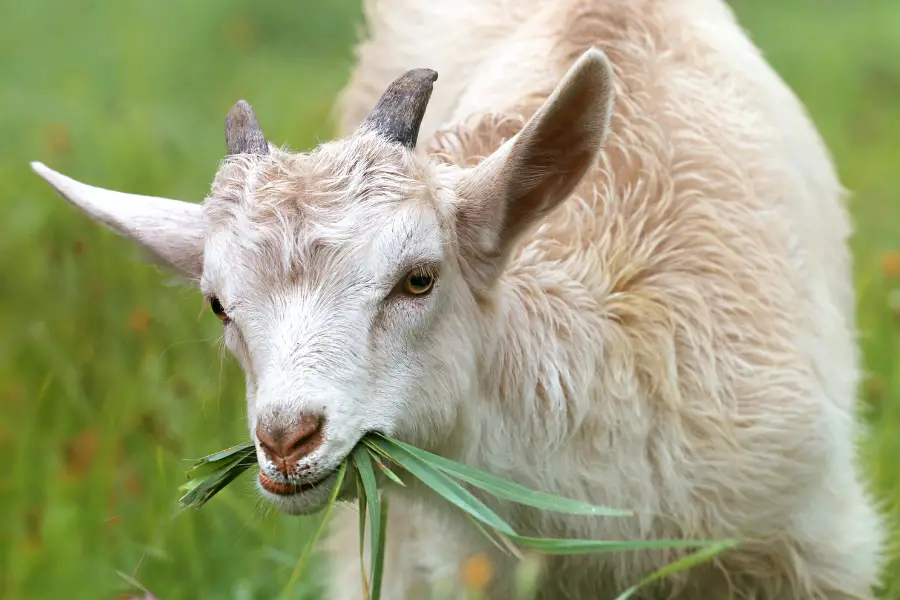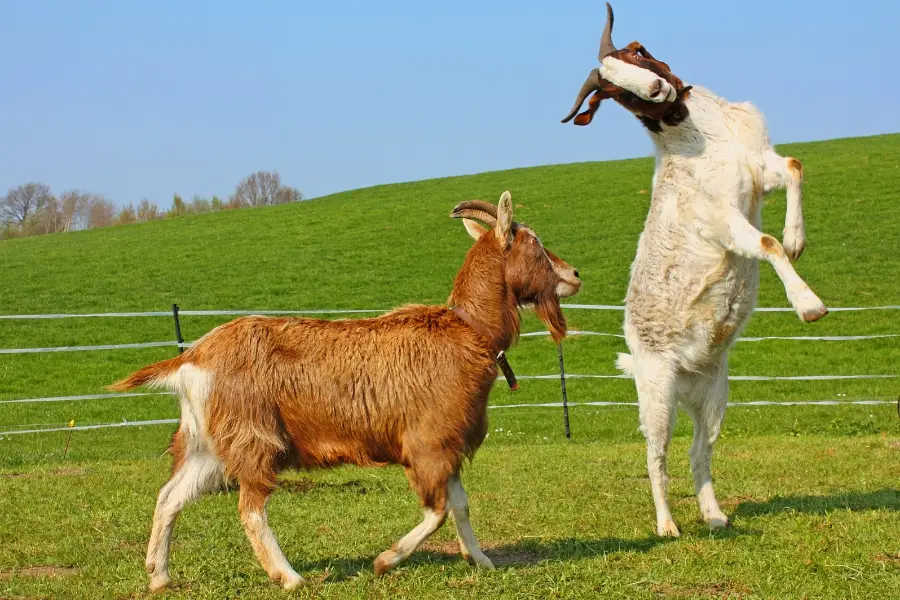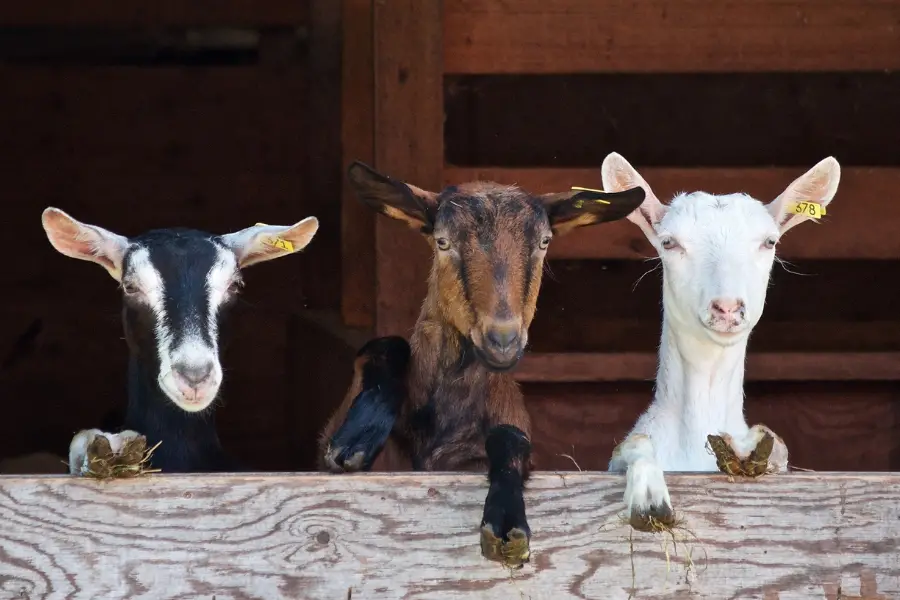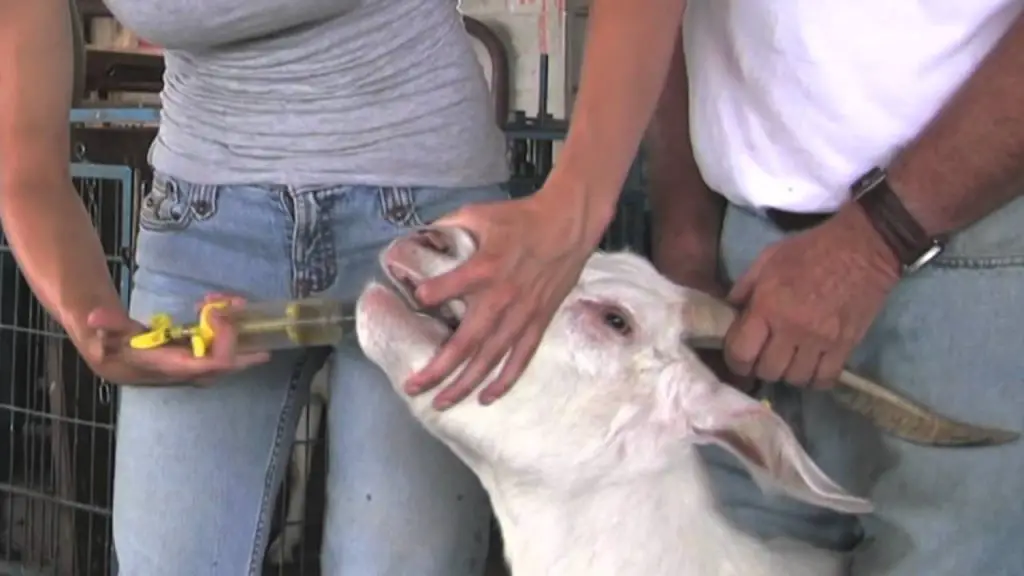
In this complete guide to worming goats using Cydectin, we answer the most common questions that farmers ask about Cydectin, including what it is, dosage amounts…and much more!
Table of contents
- What is Cydectin for Goats?
- Cydectin is FDA Approved for use with Sheep
- Cydectin is NOT FDA Approved for use with Goats
- Cattle Formulations of Cydectin cannot be used with Goats
- Worming Goats with Cydectin – What Farmers Need to Know
- Using Cydectin
- Mechanism of Action of Cydectin
- Cydectin Oral Drench For Goats Dosage
- Cydectin Pour on Dosage for Goats
- Cydectin Injectable Dose for Goats
- Is Cydectin Safe for Pregnant Goats?
- Withdrawal Time After Cydectin
- Purdue University
What is Cydectin for Goats?
Cydectin is a worm medicine that has moxidectin as an active ingredient. It is one of the most potent worm medicines for controlling parasites in goats and other animals.
Cydectin does not kill the parasite directly, but rather it disrupts the electrical impulses of the nerve and muscle cells of the parasitic worms by allowing too many chloride atoms to enter the cells, which causes the parasites to become paralyzed and then die.
Cydectin is stored in the fat cells of goats, which are distributed throughout the goats’s body. The fat cells, called adipose tissue, slowly release the medicine over about 2 months. Cydectin is effective against many parasites, including the barber pole worm.
Cydectin is FDA Approved for use with Sheep
Cydectin doses and withdrawal times for sheep are known and clearly spelled out on labels and dosage charts.
Cydectin is NOT FDA Approved for use with Goats
Because Cydectin is not FDA approved for use with goats, worming goats with Cydectin is an extra label (off label) use.
Per Cornell University: “The FDA regards extra-label use of drugs as an exclusive privilege of the veterinary profession and is only permitted when a bona fide veterinarian-client-patient relationship exists and an appropriate medical diagnosis has been made.”
Because Cydectin for goats is strictly extra label, a veterinarian must be involved and great care must be taken regarding dosage and withdrawal times, both of which are addressed below in this article.
Cattle Formulations of Cydectin cannot be used with Goats
It is important to note that only the sheep oral drench formulation can be used with goats off label. No cattle formulations can be used off label with goats.
Worming Goats with Cydectin – What Farmers Need to Know
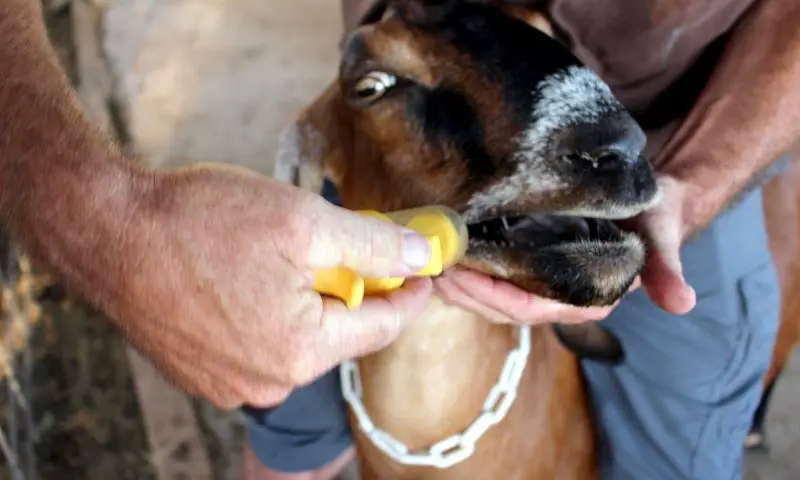
Parasites are one of the primary concerns of goat farmers because they affect the goat’s health which can impact the economics of the goat farm. The worms affect the health of the goats, and thus prevent them from living a long, healthy life.
Common Goat Parasites
There are variety of parasites that can infect goats, such as brown stomach worms (Teladorsagia or Ostertagia), tapeworms, and lungworms (Dictoyocaulus filaria). One of the most serious illnesses that a goat can face during its lifetime is an infection by the stomach worm or barber pole worm (Haemonchus contortus). This is especially true of the ruminants which are raised in the Southeastern United States. The barber pole worm feeds on the blood of the goat by piercing the lining of the intestines and therefore causing anemia in the goat.
To keep the worm load in your animals down, the goat should be properly dewormed, with consideration given to both internal worms and external parasites. Cydectin is an anthelminthic – a medicine used against parasitic worms known as helminths.
Cydectin is a Macrocyclic Lactone
Cydectin belongs to the Macrocyclic Lactone class of drugs. These are broad spectrum drugs that are effective against external and internal parasites. These drugs are widely used in both veterinary and human medicine applications.
Cydectin is not an Avermectin, it is a Macrocyclic Lactone drug. Ivermectin is an Avermectin.
Research indicates that drugs in the Macrocyclic Lactones group are effective against more than three hundred ectoparasites (external parasite) and endoparasites (internal parasites). Astoundingly, sometimes just a single dose in the right quantity is all that is needed to have a long term effect on nematodes infections.
Fortunately, Cydectin is one of the Macrocyclic Lactones that is effective against external parasites even with a single dose. This medicine works on both immature nematodes and external parasites.
Using Cydectin
Nevertheless, Cydectin should be used strategically and judiciously in your goats, as the parasites will develop resistance to it over time. This is a common downside of anthelmintics.
In the case of the barberpole worm, you should not treat the entire tribe of goats. Instead, use the FAMACHA score to measure the color of the lower eyelid to rate the level of anemia. Then select certain goats for treatment based on how anemic they are.
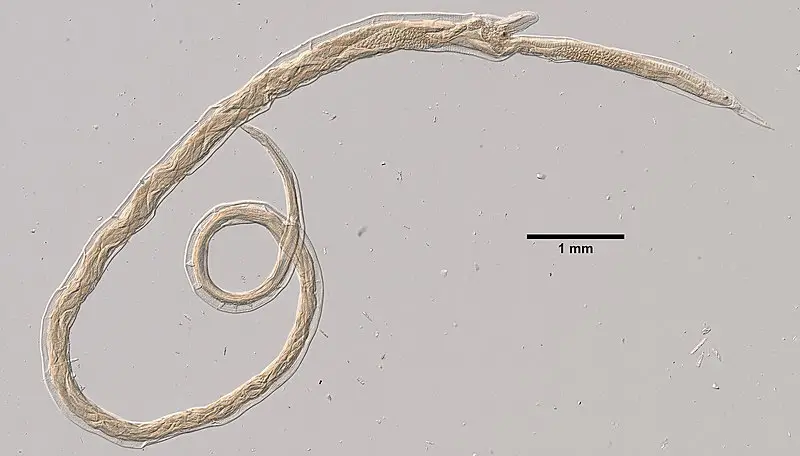
There is only one way to administer Cydectin to goats, which is orally. This is sometimes referred to as drenching.
There are numerous pour on methods to administer Cydectin to cattle, however, the pour on method does not work for goats.
Cydectin is also not administered to goats via injection.
Cydectin is widely dispersed through the body and concentrates specifically in adipose tissue (tissues that store energy in the form of fat).
Due to overuse, there is some Cydectin resistance developing among worms.
Moxidectin (Cydectin) still has effective results even against the parasites that become resistant to Ivermectin (another member of the Macrocyclic Lactones group). The Cydectin, when used orally, has a persistent efficacy for 35 days against barber pole worms and other worms.
Mechanism of Action of Cydectin
The Cydectin works by blocking the neurotransmitters in the nerve cells and muscles of the parasites. This blockage of nerves causes flaccid paralysis of the parasites which leads to their death.
Cydectin work on the invertebrate parasites by connecting to Glutimate-Gated Chloride Channels (GluCls) in the parasite’s nervous system. These GluCls are critical for muscle function. Vertebrates, including goats, don’t have GluCls in their nervous systems, making Cydectin incredibly safe for use.
Cydectin Oral Drench For Goats Dosage
It is critical to note that the correct Cydectin dosage for goats is different from that of sheep.
Cornell University has an excellent dewormer dosage chart here, including Cydectin Oral Drench For Goats:
Cornell University Dosage Chart
Please read the chart completely, including the notes and footnotes, to understand the proper dosage for your goats. Make sure that your veterinarian is involved in dosage decision making, as Cydectin usage in goats is off label.
Cydectin Pour on Dosage for Goats
There is no pour on Cydectin dosage for goats as this is an unacceptable application method for goats.
Cydectin Injectable Dose for Goats
Their is no injectable Cydectin dosage for goats as this is an unacceptable application method for goats.
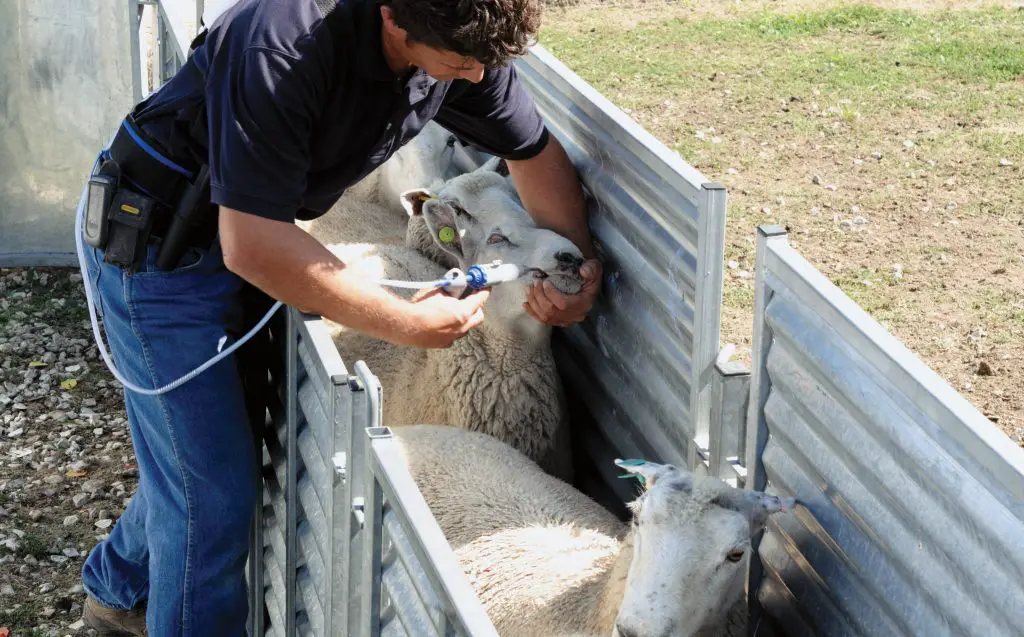
Is Cydectin Safe for Pregnant Goats?
The use of Cydectin in pregnant goats is controversial. Because it is an off label use, guidance from the FDA is not available.
There are farmers that continue to use Cydectin in pregnant goats as their past experience doing so has worked out well for them.
However, this should be a decision made in consultation with your veterinarian. As you will be working closely with a veterinarian to administer Cydectin in the first place, be sure to inform the vet regarding any pregnant goats that you may have.
Withdrawal Time After Cydectin
Regarding Cydectin use in sheep, the withdrawal period for both meat and milk is 14 days per North Carolina State University.
However, goats require larger doses than sheep, and will likely require longer withdrawal periods. Make sure that you consult with your veterinarian when developing your Cydectin plan and take into account dosage size and which goats may be providing meat and milk when determining withdrawal periods.
Purdue University
Purdue University produced this excellent overview video. Crucially, they cover how to use the FAMACHA scoring technique to decide which goats to treat, and with how much urgency:
References:
- Goat Parasite Dewormer Chart / 3
- A New Approach to Worming
- Anthelmintic Toxicity, by Dr. Dan Miller – Kinne.net
- Goat Parasite Dewormer Chart
- Moxidectin: a review of chemistry, pharmacokinetics and use in horses
- Fias Co Farm/Goats – Wormers / Dewormers for Goats
- MOXIDECTIN for veterinary use in DOGS, CATS, HORSES, CATTLE, SHEEP and GOATS against external and internal parasites: worms, lice, mites, ticks and flies
- Fighting the Enemy: Controlling Barber Pole Worms in Sheep and Goats
- Drenches for goats: using products correctly and legally
- Goat Deworming


